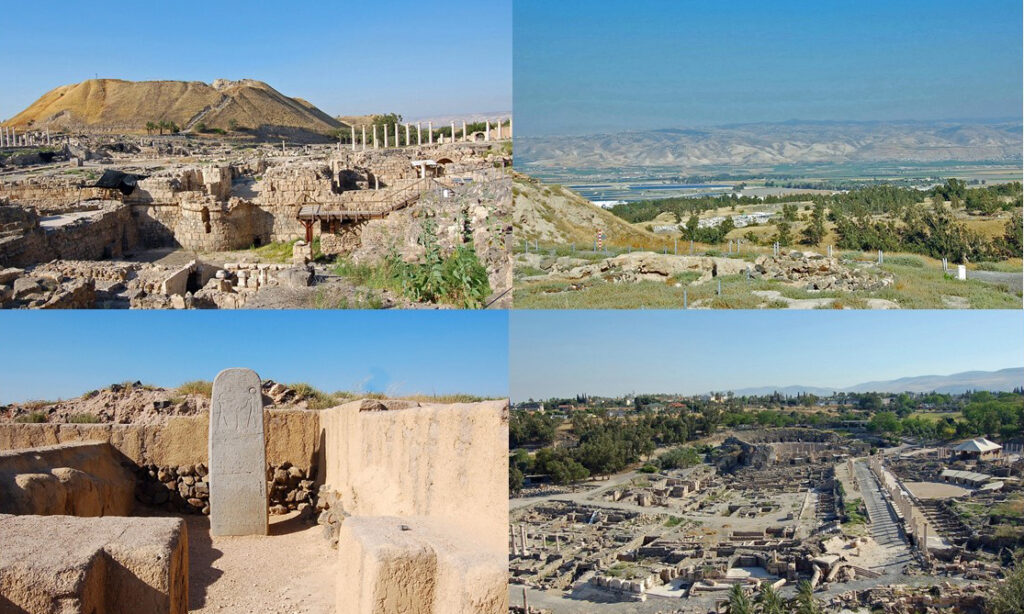In our continuing trip through Israel and the Palestinian Territories, we come to Beth She’an National Park, featuring ruins from thousands of years of successive occupiers of the site.
The park site, about 20 miles southeast of Nazareth, was first settled in about 7000 B.C.. As the site was repeatedly occupied and abandoned, accumulating debris created a large mound or “tell.” Archaeologists cutting through the tell determined that Canaanites established a city around 2000 B.C. After Egyptians captured the area in about 1500 B.C., they made the city an administrative center. The Egyptians lost control of the area to the Philistines, who used the city as their base. According to the Bible, Philistines defeated King Saul at nearby Mt. Gilboa and hung his headless body and those of his three sons on the wall of the city then called “Beth She’an.” King David drove the Philistines from the area, adding Beth She’an to his United Monarchy. When the Assyrians conquered the divided Northern Kingdom in 732 B.C., they burned Beth She’an. The Greeks later took over the area and created a city named “Scythopolis” atop the ruins. The Romans conquered the area in 63 B.C. and expanded Scythopolis beyond the tell, adding a colonnaded main street (“cardo”), a hippodrome and a 7000-seat theatre. Scythopolis became the leading city of the Decapolis, a loose confederation of ten Greco-Roman cities Jesus visited. By the fourth century, Scythopolis was a Christian city, captured by the Muslims in 634. A massive earthquake destroyed the city in 749.
Visitors to Beth She’an National Park can explore one of the largest Roman theatres in the Middle East. They can also climb to the top of the tell, where a replica of an Egyptian stele (monument), chronicles the successful efforts of Egyptian Pharaoh Seti I to recapture the area from rebellious Canaanites.

Comments are closed.